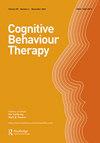Culturally adapted CBT – the evolution of psychotherapy adaptation frameworks and evidence
IF 3.2
2区 心理学
Q1 PSYCHOLOGY, CLINICAL
引用次数: 2
Abstract
Abstract Culture plays a significant role in psychotherapy practice, with cultural adaptations being implemented more commonly as globalisation and cultural awareness increase. An abundance of systematic reviews, meta-analyses and randomised controlled trials exploring culturally adapted interventions have been published across the globe. In this paper, we present the historical background to cultural adaptation by summarising and evaluating previous frameworks, as well as reviewing current evidence for such adaptations and highlighting routes for further research. Around twenty cultural adaptation frameworks have been published, covering various population demographics and intervention types, providing general guidelines for the implementation of cultural adaptations to psychosocial interventions. Nearly all the frameworks used previous literature and research to develop models on culturally adapted interventions. Some even implemented stakeholder discussions, randomised control trials, and even pilot studies. A variety of cultural adaptation factors have been outlined and discussed; however, there is no agreement on which elements work and which do not. Existing evidence indicates that culturally adapted interventions are effective, regardless of intervention type or population. While cognitive behavioural therapy (CBT) was the most common intervention in trials, there are, at present, no high-quality comprehensive meta-analyses or systematic reviews on culturally adapted CBT which include all literature on this topic. This is needed in order to provide a holistic and detailed comprehension of where current understanding lies. We conclude our paper with recommendations for researchers, trainers and commissioners. Key learning aims (1) Current theoretical frameworks guiding the development of culturally adapted frameworks will be outlined. Gaps in current literature will be highlighted. (2) An overview of the current literature of culturally adapted psychotherapies, specifically CBT and its efficacy in improving outcomes for patients, will be provided. (3) The need for culturally adapted CBT and comprehensive guidelines for the development of these interventions will also be discussed, with clinical implications highlighted.文化适应CBT——心理治疗适应框架和证据的演变
文化在心理治疗实践中发挥着重要作用,随着全球化和文化意识的增强,文化适应越来越普遍。在全球范围内,已经发表了大量探索文化适应性干预措施的系统综述、荟萃分析和随机对照试验。在本文中,我们通过总结和评估以前的框架来介绍文化适应的历史背景,并回顾当前的适应证据,并强调进一步研究的途径。已经出版了大约20个文化适应框架,涵盖了各种人口统计和干预类型,为实施文化适应社会心理干预提供了一般准则。几乎所有的框架都使用了以前的文献和研究来开发文化适应性干预的模型。一些公司甚至实施了利益相关者讨论、随机对照试验,甚至是试点研究。对各种文化适应因素进行了概述和讨论;然而,对于哪些元素起作用,哪些元素不起作用,还没有达成一致意见。现有证据表明,无论干预类型或人群如何,适应文化的干预措施都是有效的。虽然认知行为疗法(CBT)是试验中最常见的干预措施,但目前还没有关于文化适应性CBT的高质量综合荟萃分析或系统综述,其中包括有关该主题的所有文献。这是必要的,以便对当前的理解提供一个整体和详细的理解。最后,我们对研究人员、培训人员和专员提出了建议。(1)将概述当前指导文化适应框架发展的理论框架。将突出当前文献中的空白。(2)将概述当前文化适应心理疗法的文献,特别是CBT及其在改善患者预后方面的功效。(3)需要文化适应的CBT和综合指南的发展这些干预措施也将被讨论,临床意义突出。
本文章由计算机程序翻译,如有差异,请以英文原文为准。
求助全文
约1分钟内获得全文
求助全文
来源期刊

Cognitive Behaviour Therapy
PSYCHOLOGY, CLINICAL-
CiteScore
9.20
自引率
0.00%
发文量
25
期刊介绍:
Cognitive Behaviour Therapy is a peer reviewed, multidisciplinary journal devoted to the application of behavioural and cognitive sciences to clinical psychology and psychotherapy. The journal publishes state-of-the-art scientific articles within: - clinical and health psychology - psychopathology - behavioural medicine - assessment - treatment - theoretical issues pertinent to behavioural, cognitive and combined cognitive behavioural therapies With the number of high quality contributions increasing, the journal has been able to maintain a rapid publication schedule, providing readers with the latest research in the field.
 求助内容:
求助内容: 应助结果提醒方式:
应助结果提醒方式:


